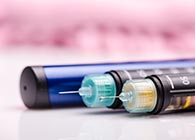On 9th May 2023, the Government and NHS announced an overhaul of primary care across England with the aim of making it easier for patients to contact their GP and end the 8am rush.
How will it work?
- Patients will be able to find out exactly how their request will be handled on the day they call.
- Practices will be given £240 million this year to embrace the latest technology. Old analogue phones will be replaced with modern systems and easy to use online tools to ensure patients get the care they need as soon as possible.
- This will mean when patients contact their practice online or over the phone, they will know on the day they make contact how their query will be managed, rather than being told to call back later. Rather than an engaged tone patients will receive a queue position, a call back option and their call can be directly routed to the right professional. The phone system will also be integrated with the clinical systems so practice staff can quickly identify patients and their information from phone numbers.
If their need is urgent, they will be assessed and given appointments on the same day. If it is not urgent, appointments should be offered within two weeks or patients will be referred to NHS 111 or a local pharmacy.
Care navigators
- There will be a major expansion of the role of receptionists to become expert “care navigators”. They will direct patients to other professionals within the general practice or other medical professionals such as community pharmacists who can best meet the needs of the patients. Successful care navigation can help direct 40% of requests more effectively and speeds up appointments for those who need them.
- The government will fund 6,500 care navigator training places – that is one member of staff per practice who can then pass on the training to colleagues. Care navigators will help assess, prioritise, respond and assist. They can help make sure those who want to see a named GP or preferred member of staff can do while those who are happy to see a duty doctor can also do so.
Pharmacists increasing role
Separately, it is being proposed that community pharmacists’ role is to be expanded so that they can prescribe drugs for some conditions, such as sore throats, ear ache and urinary tract infections. They will receive £645 million to carry out this extra work. The aim is to further reduce the number of patients requiring GP appointments.
This has raised some concern from pharmacists as some are already financially in some difficulties and some are closing down. It has equally received concerns from GPs who maintain that the real problem is a shortage of GPs with the government is unlikely to meet its target of an increase of 6,000 new GPs by 2025.




































